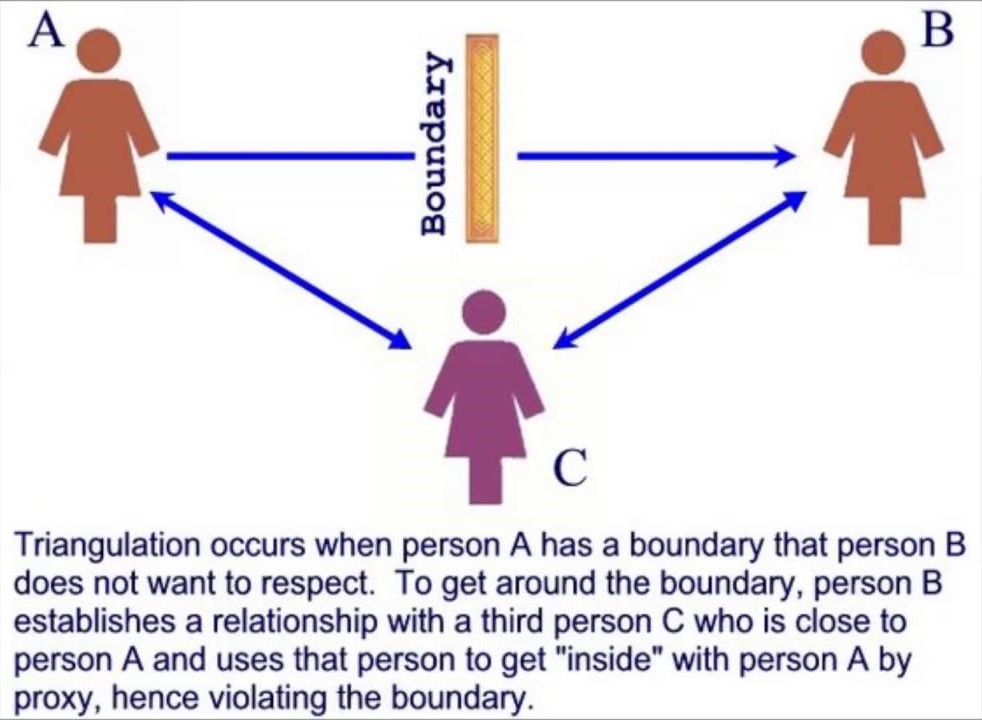February 2023

Not Just for Narcissists or Psychopaths
A friend of mine, I will call him Daniel, recently confided in me about an online experience he had with a woman. He began chatting with her about a month ago. She was a career woman in her 40s, close to his age, divorced and with two grown children. Daniel was fine with this, since he was also divorced with adult children.
They chatted daily, sharing events in their daily lives, thoughts and views. She was pleasant and engaging. They exchanged pictures and Daniel found her attractive. She indicated that she also found him attractive. It seemed like things were going somewhere.
However, Daniel said she very quickly injected intimacy into their chats. She frequently called him honey or sweetheart, and sprinkled kissing and heart emojis into her chats. Daniel had not initiated this and, although he responded kindly, did not reciprocate with the same level of words or emojis. He told me that he did not want to give false expectations or hopes before there were any. She also confided in him very early that her husband had left her for another woman, because her career was her first priority. While that seemed a bit TMI (too much information) for Daniel, he brushed it off.
One morning shortly after Daniel arose from bed, he received a video chat call from her. The first of such ever. Not having showered, shaved or eaten breakfast yet, he declined the call and replied with a message that he was not able to take a call at the moment and could they video chat later. She was silent for the rest of the day. He thought nothing of it. When he greeted her the next day, she curtly responded with …
I don’t chat with strangers who won’t answer their phones.
He simply responded with, “Cool, see ya” and blocked her. He asked me if I thought he had overreacted.
I told him that I felt he had not overreacted, even with the block. In my opinion she was out of line by demanding that he answer an unexpected video chat early in the morning. To me, that is a violation of privacy boundaries. If she wants to do things like that, fine. It is not a crime, but she should not be surprised if there are people who will not answer. A text message, or even a voice call, is one thing. However, a video chat is something for which many people like to prepare beforehand, just like a face-to-face meeting. If she insists upon doing this, then she should be prepared to have a lot of people not want to answer her calls. Being offended about it is unrealistic.
I asked Daniel, “How do you feel when you call someone and they do not answer, even someone close to you.” He responded, “I would think they are busy and just try again later.” I told Daniel, “Exactly. If she is demanding you immediately answer a call now as casual friends, just imagine how it would be if you were in a relationship with her? On top of that, she freezes you out afterwards without even an explanation. That is passive-aggressive. Either she sincerely feels entitled to an immediate answer, or she is trying to use it as a manipulative tool. Either way, a relationship with someone like that will be problematic.”
We talked for a bit more and the subject of red flags came up, early signs that might have tipped him off that she might be problematic. I told him that the fast push for intimacy was a big red flag. The language, the emojis and her sharing of very personal relationship details within the first few weeks were all red flags. Pushing for fast closeness, either emotional or physical, is a tactic used by narcissists and psychopaths to gain the trust of their victims. While I do not believe this woman was either of those, it can also be a sign of someone who has emotional trauma and is looking to fill a void inside them by using others as resources. Past broken relationships, daddy issues, a feeling of desperation over being alone while growing older, or some type of ingrained personality disorder. It could be any or none of these. Diagnosing and labeling it is a pointless exercise for the non-professional. It will not change the dynamic. However, it is a glaring indicator that being in a relationship with a person who displays this trait is often fraught with problems.
The passive-aggressive way she reacted when she did not get what she wanted further corroborates the possibility of a problematic relationship. She froze him out rather than communicate her concerns to him, then pushed him away when he contacted her again. This is a sign of either manipulation or emotional immaturity. Yes, many adults are passive-aggressive, but that does not mean you should tolerate it or allow someone into your life who displays it.
I reiterated to Daniel that blocking her was probably a good thing. If it was manipulation on her part, it would be the beginning of a lot of back-and-forth with her justifying why she deserves immediate attention and Daniel trying to reason with her. Manipulators do not want to reason, they want to win and control. If it was not manipulative and she genuinely felt entitled to immediate attention, it would still be a problem as this is not normal behavior and quickly turns the partner into a slave to her whims.
You can feel empathy for people like this, but that does not obligate you to accede to their demands or be in a relationship with them. You cannot “fix” them. They can only fix themselves. I speak from experience here, having had trauma and deep wounds from narcissistic parents and toxic past relationships. The best thing I did to resolve this was acknowledge my own brokenness, introspect as to the causes and effects, get professional help, accept responsibility for it, and spend time alone working to repair myself with help from God. A person who cannot or refuses to recognize this within themselves is primed for continual bad relationships, and will hurt many others in the process.
In my opinion, Daniel dodged a bullet. Given her actions towards Daniel, I would wager that placing her career first is not the only reason her husband left her. Always remember, no matter how nice a person treats you initially, there is a potential demon lurking underneath.

















